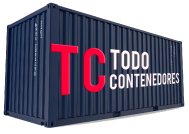The following interactive map, courtesy of data visualization studio Kiln, makes clear the world’s busiest shipping lanes:
Exercising Capacity Growth Discipline
As you know, shipping rates have surged to all-time highs since the start of the pandemic as households shifted much of their spending from services to goods. Although these sky-high rates have retreated somewhat, shipping companies are well-positioned to maintain high levels of revenue through capacity growth discipline.
Take a look below. Since at least 1996, global shipping companies have grown the size of their fleets each consecutive year to meet demand, but in the past decade, the rate of expansion has been much lower than in previous years.
There are other ways companies rebalance supply and demand in their favor. One of them is idling, which Bank of America describes as “a relief valve for the industry in order to deal with temporary overcapacity.” Then there’s vessel speed. In recent years, container ships have slowed down, due largely to megaships that have been designed for slower, more fuel-efficient sailing.
And finally, there are scrappings and demolitions. According to BofA, aging vessels become more expensive to maintain and generally have less competitive fuel consumption than newer ships. Scrapping typically slows down, though, during boom periods such as before the financial crisis and in the months since the pandemic began.
Maersk Dethroned By MSC As World’s Biggest Container Carrier
Remember I said McLean sold his company in 1969? The name of that company was SeaLand, which, through a series of subsequent sales and acquisitions, ended up as part of the super-massive Danish shipping conglomerate A.P. Moller-Maersk, today one of the largest companies on the planet with a market cap of about $70 billion.
In its fourth-quarter financial results, released Friday, Maersk said it generated an incredible $18.5 billion in revenue and earnings before interest, tax, depreciation and amortization (EBITDA) of $8 billion, well above the company’s guidance.
Back in October, Bloomberg analysts estimated that Maersk’s 2021 profits would total $16.2 billion, which would be a record not just for Maersk but any Danish company. We’ll see how accurate this estimate was next month when the company releases its annual report.
In any case, my reason for bringing this up is because Maersk has for decades been the largest shipping company by carrying capacity—until recently. Switzerland-based company MSC finally dethroned Maersk recently after it took delivery of several second-hand ships, according to S&P Global. MSC now operates 4.284 million TEUs, compared to Maersk’s 4.282 TEUs.
 Delta Beats Expectations
Delta Beats Expectations
Speaking of earnings, Delta Air Lines reported for the fourth quarter and for 2021 last week, and results, while certainly not at pre-pandemic levels, were nevertheless much better than expected. Shares of the Atlanta-based company, which is also involved in the air cargo business as Delta Cargo, finished Thursday’s session up 2.12%.
Delta reported sales of $9.47 billion during the quarter, beating expectations for $9.21 billion. For the full year, it reported $280 million in profit, compared to a loss of $12.4 billion for the previous year.
Furthermore, the carrier believes it has a strong 2022 ahead of it. CEO Bastian says that even though omicron continues to disrupt commercial air travel, he is “confident in a strong spring and summer travel season with significant pent-up demand for consumer and business travel.” Wheels up!
Find out why we’re bullish on global cargo and shipping names by clicking here!
Originally published by U.S. Global Investors on January 18, 2022.
For more news, information, and strategy, visit ETF Trends.
All opinions expressed and data provided are subject to change without notice. Some of these opinions may not be appropriate to every investor. By clicking the link(s) above, you will be directed to a third-party website(s). U.S. Global Investors does not endorse all information supplied by this/these website(s) and is not responsible for its/their content.
Holdings may change daily. Holdings are reported as of the most recent quarter-end. The following securities mentioned in the article were held by one or more accounts managed by U.S. Global Investors as of (12/31/2021): Amazon.com Inc., Costco Wholesale Corp., AP Moller-Maersk A/S, COSCO SHIPPING Holdings Co. Ltd., Delta Air Lines Inc.
EBITDA, or earnings before interest, taxes, depreciation, and amortization, is a measure of a company’s overall financial performance and is used as an alternative to net income in some circumstances.


Comentarios recientes